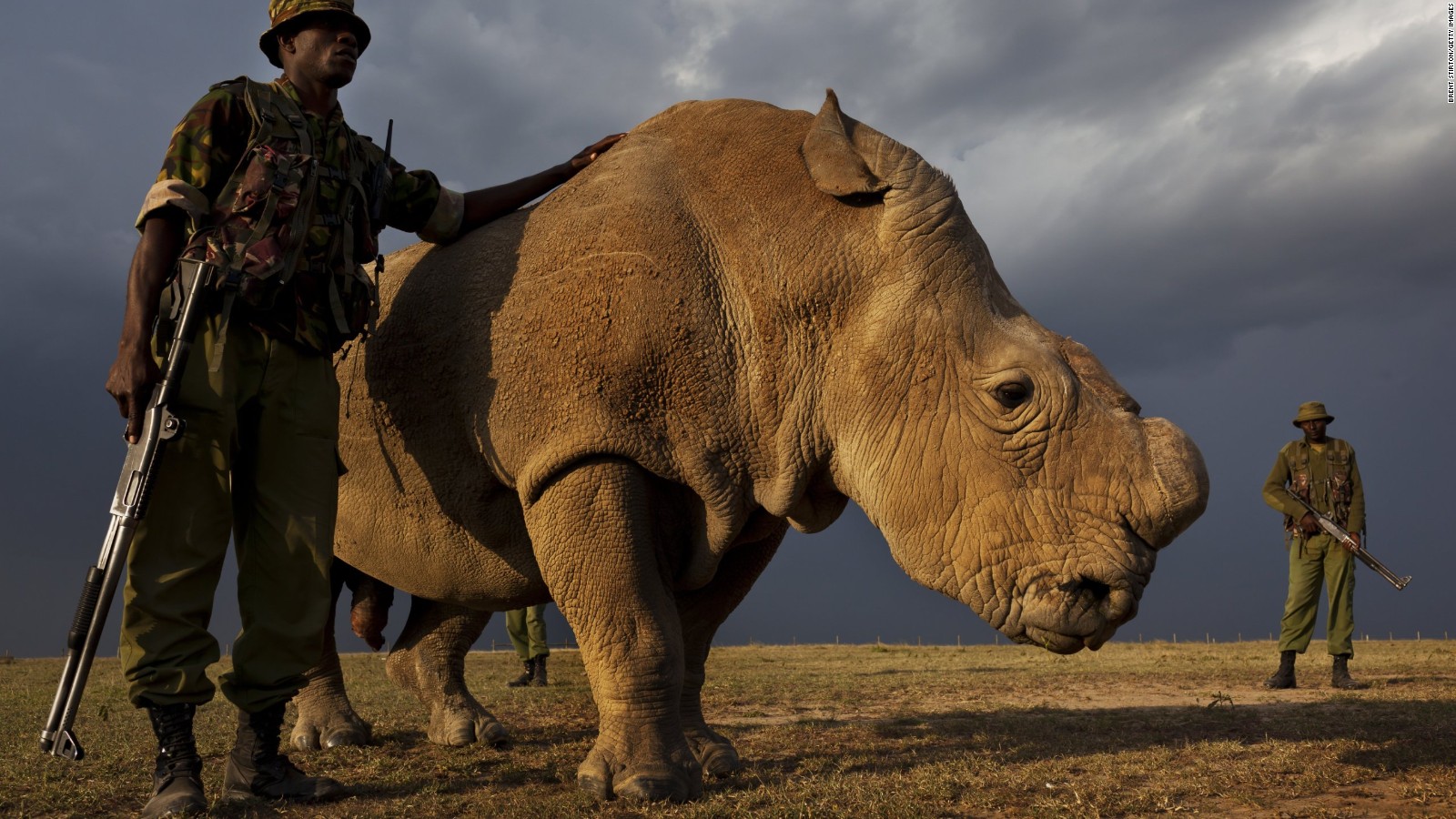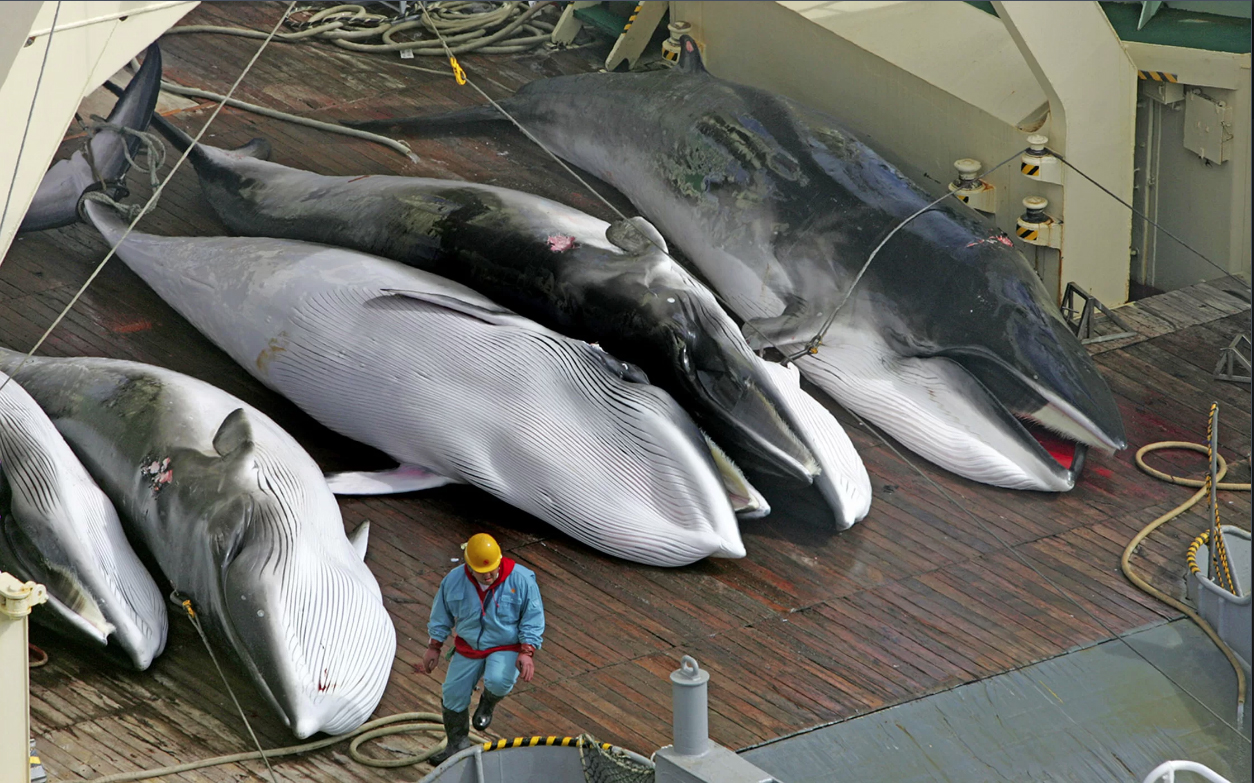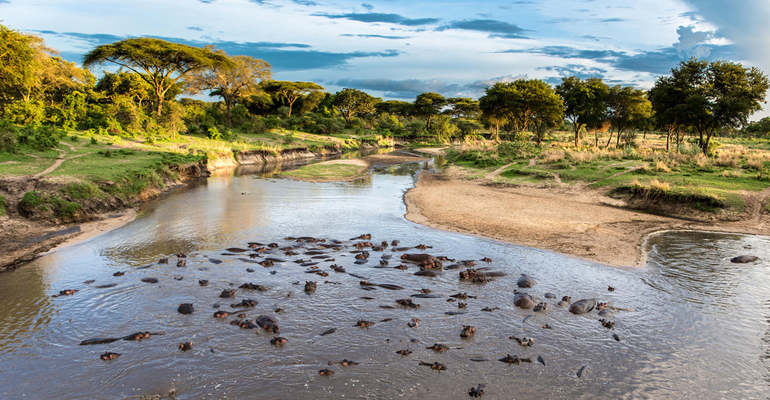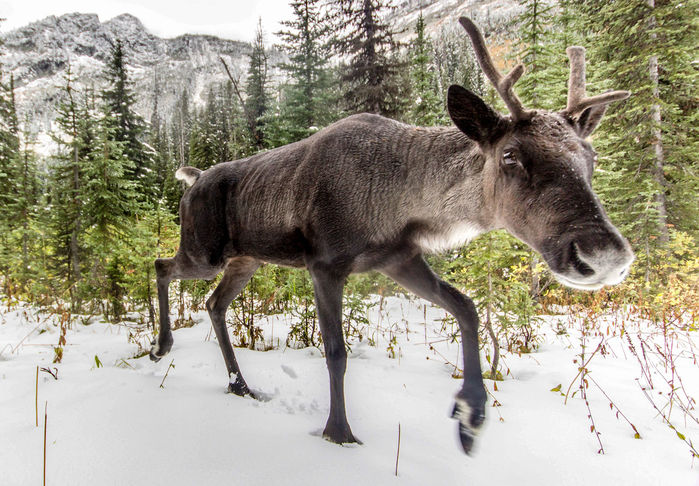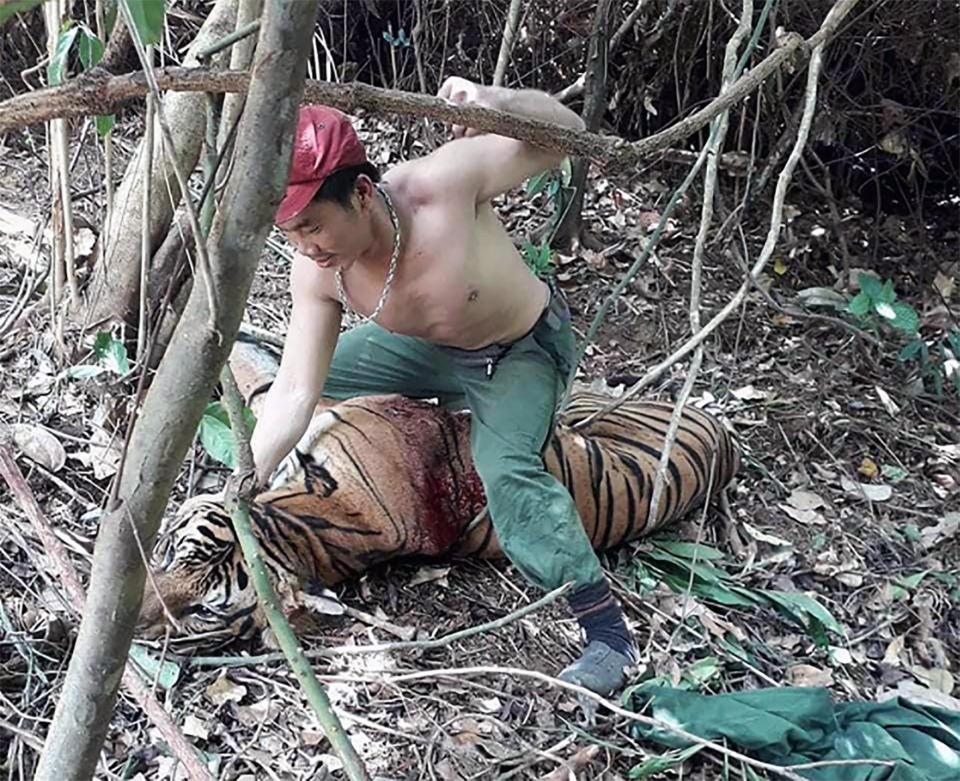Kenya is home to a number of iconic animals ranging from elephants and rhinoceros to giraffes, leopards and cheetahs. Elephants and rhinoceros are among the most threatened, as their tusks and horns make them prime targets to poachers.
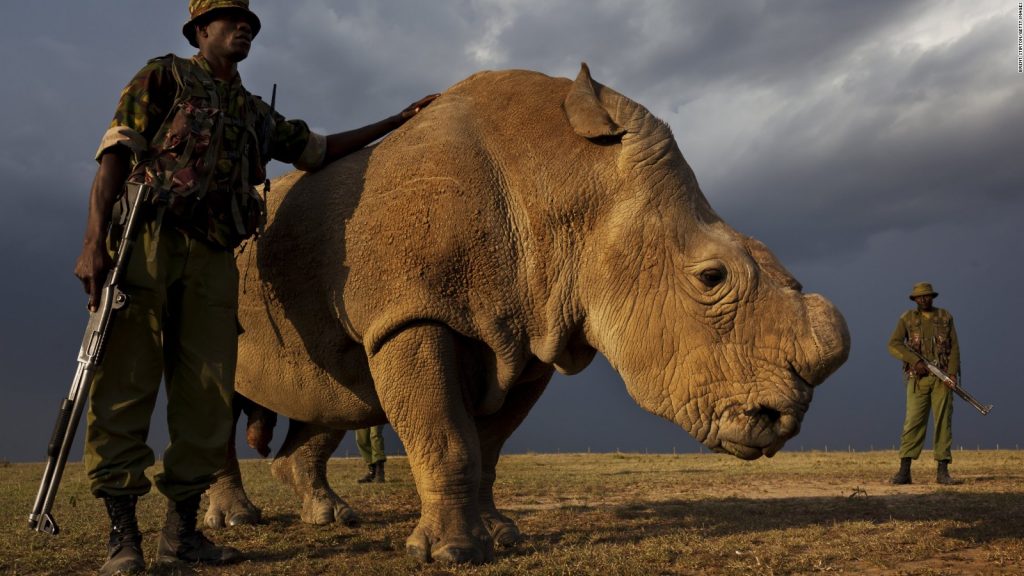
It’s illegal to kill the endangered animals in Kenya, and the Wildlife Conservation Act, put in place in 2013, carries a life sentence or fine of $200,000 for offenders.
However, according to Najib Balala, cabinet secretary in the Ministry of Tourism, “This has not been deterrence enough to curb poaching.” As a result, a much harsher sentence has now been announced: poachers in Kenya will now face the death penalty.
The measure has brought about both praise from those hopeful that the stiffer sentence will save the species at risk and backlash, from those opposed to capital punishment.
- Elephants and rhinoceros are among the most threatened species in Kenya, as their tusks and horns make them prime targets to poachers
- It’s illegal to kill the endangered animals in Kenya, and the Wildlife Conservation Act, put in place in 2013, carries a life sentence or fine of $200,000 for offenders; however, the sentences weren’t acting as a strong enough deterrence
- A much harsher sentence has now been announced: poachers in Kenya will face the death penalty; the measure has brought about both praise from those hopeful that the stiffer sentence will save the species at risk and backlash, from those opposed to capital punishment

Large Herbivores in Kenya Continue To Be Killed by Poachers
Poaching in Kenya has been on the decline due to increased attention to conservation and wildlife law-enforcement efforts. Compared to 2012 and 2013, rhino poaching in the area has declined by 85 percent and elephant poaching by 78 percent.2 Still, the animals are in peril.
Black rhinos in Kenya number at under 1,000 whereas the elephant population is hovering around 34,000. And in 2017, nine rhinos and 69 elephants were killed by poachers, which is enough to “virtually cancel out the overall population’s growth rate,” the Save the Rhino organization told The Independent.3
Elephants are an attractive target to poachers, as their ivory tusks are carved into jewelry, utensils, religious figurines and other trinkets in the Far East. According to the African Wildlife Foundation (AWF), up to 70 percent of illegal ivory ends up in China, where it sells for up to $1,000 a pound.
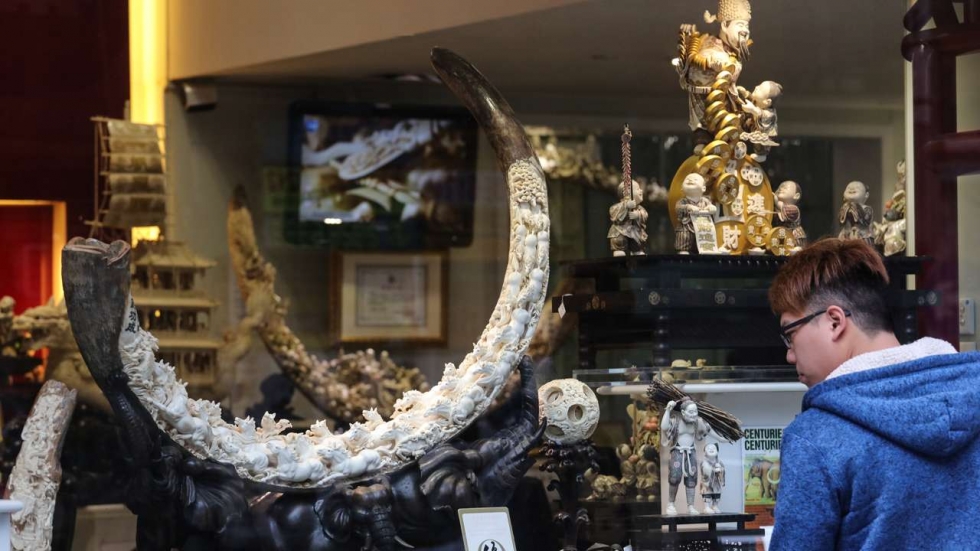
China enacted a ban on ivory that took effect January 1, 2018, but black markets still remain.4 Rhino horns are also sought out by poachers, as the horns are believed to treat impotence, fever, cancer, hangovers and other medical ailments.
In reality, they do no such thing, as they’re made of keratin, the same thing your fingernails are made of. Still, rhino horns sell for close to $30,000 a pound, which is more than gold, which sells at about $22,000 a pound. According to AWF, “At current poaching rates, elephants, rhinos and other iconic African wildlife may be gone within our lifetime.”5
Kenya Increases Wildlife Crime Prosecutors
Poaching in Africa is largely the result of organized crime syndicates, who, AWF states, “use high-powered technology and weaponry to track and kill many animals at once without being detected.”
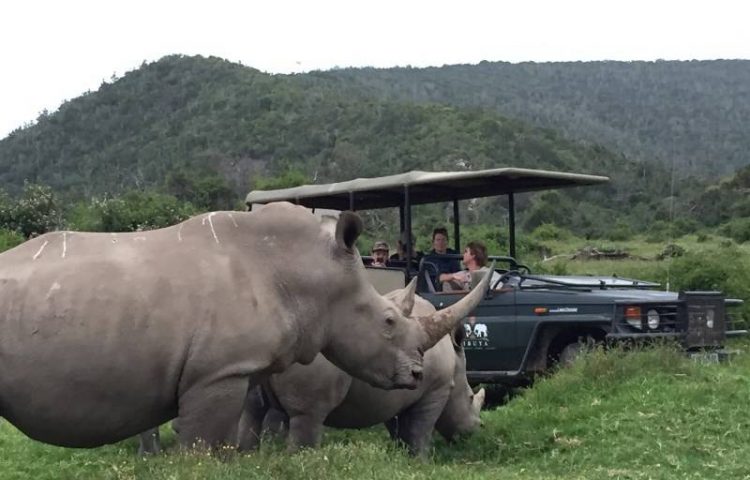
Night-vision goggles, grenade launchers, AK-47s, GPS and low-flying helicopters are all par for the course. In an effort to fight back, in addition to making poaching a crime punishable by the death penalty, the Kenya Wildlife Service (KWS) plans to increase its number of wildlife crime prosecutors.
Currently, only two such prosecutors cover the entire country. But it’s hoped that the number will be increased to up to 14, allowing Kenya to ensure poaching criminals are appropriately prosecuted. The measure was made possible by a collaboration between Kenya’s national prosecution service and conservation organization Space for Giants.
“Not only can KWS catch wildlife criminals but now they have the capacity to ensure those criminals are convicted under Kenya’s robust laws,” Max Graham of Space for Giants told The Independent.
“A ranger in the field should not have to experience the frustration of confronting a wildlife criminal they arrested a week earlier walking free again because of an acquittal. This is a critical step up in the battle against the illegal wildlife trade.”7
Some animals, such as black rhinos, are so critically endangered that the remaining populations have been sent to sanctuaries, which are guarded by armed rangers.
Some Kenyan rangers are also getting help from technology, including infrared and thermal cameras, both hand-held and strapped to their cars. The cameras allow rangers to spot body heat from poachers and animals nearly two miles away.
“In the past, we would never have found these people,” Brian Heath, a conservationist who runs conservation group the Mara Conservancy, told Wired.
“Now the poachers are saying it’s just not worth going out, because the chance of getting caught is getting higher and higher. It has been a big deterrent.”
In other areas, like South Africa where most rhinos live, dozens of rhinos have actually been airlifted out of poaching-prone areas and into safer locales, like Botswana, where poaching is rare.
What Does the Future Hold for Endangered Rhinos and Elephants?
Aside from poaching, habitat loss is another threat faced by rhinos and elephants. Estimates suggest that these species and other large herbivores like hippopotamus only occupy about 19 percent of their historical ranges in Africa.
These species require large expanses of land and have difficulty surviving in fragmented areas, but their habitats are being broken up by human encroachment, including the building of roads, livestock production, crop cultivation and civil unrest.
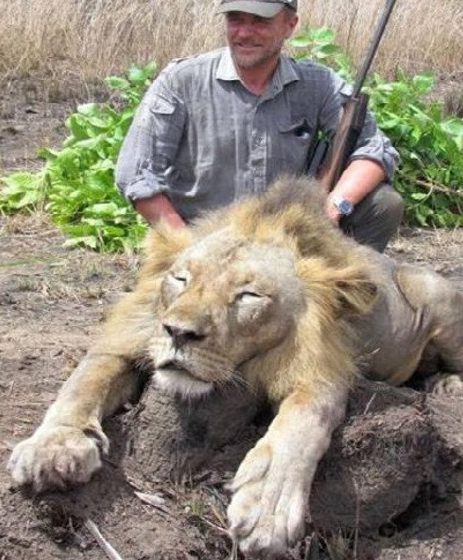
What would the world be like without elephants and rhinos? Hopefully we will never find out, but it would be a devastating loss, as both species provide valuable benefits to the environment. Elephants, for instance, disperse seed in their feces as they travel over long distances, while rhinos graze on large swatches of grass, helping to keep it short and increasing food access for impalas, wildebeests and zebra.
Through the excretion of urine and feces, elephants and rhinos also create patches of concentrated nutrients in the environment, benefitting the entire landscape.
As for what the future holds, many are hopeful that Kenya’s strict stance against poaching will turn the area into a global conservation leader, helping to save these magnificent species. Efforts will need to be made across the continent, however, for lasting protection to occur, according to AWF:
“Across the continent’s diverse wild lands, management authorities need data-driven solutions to enhance anti-poaching capacity to allow remaining priority populations to recover from previous, and current, crises. Meanwhile, community-level interventions must explore different economic opportunities that secure rather than destroy biodiversity as pressure on natural resources grows with increasing development, infrastructure, and urbanization.”
Source: Independent.co.uk
